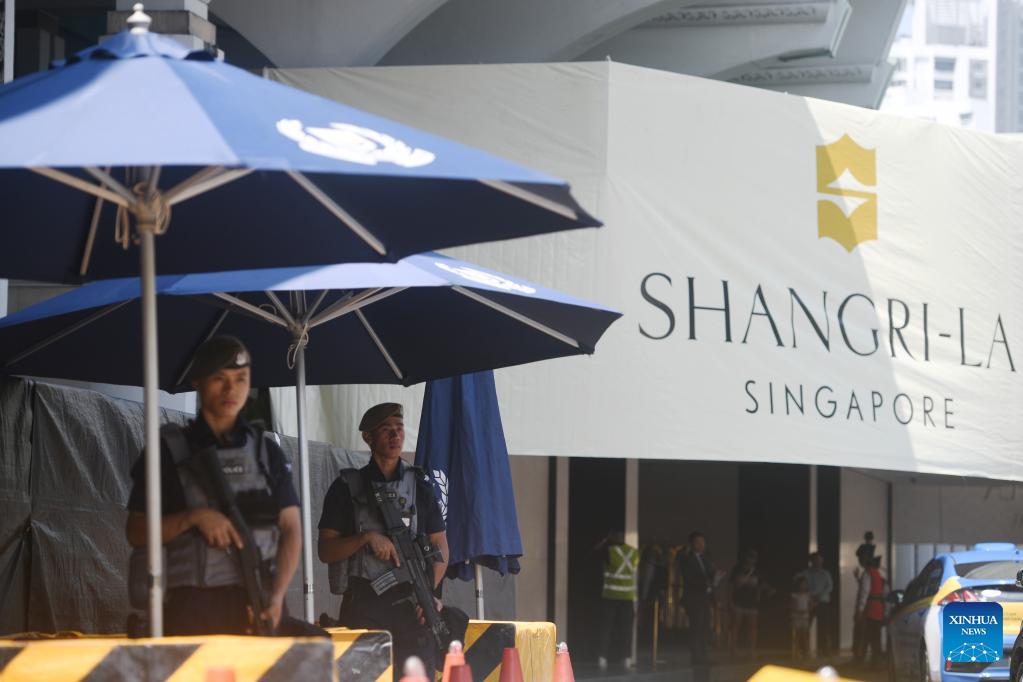
Policemen stand guard near the venue of the 20th Shangri-La Dialogue at Singapore's Shangri-La Hotel on June 2, 2023. [Photo/Xinhua]
This is an editorial from China Daily.
The squabble in a panel discussion at the Shangri-La Dialogue in Singapore on Saturday and how it was reported offer some food for thought.
The panel members consisted of Cui Tiankai, Chinese ambassador to the United States from 2013 to 2021, Ukrainian Defense Minister Oleksii Reznikov, Dutch Defense Secretary Kajsa Ollongren and head of the National Resilience Institute of Indonesia Andi Widjajanto.
Acknowledging that Asia used to look to Europe for its experience in regional integration, Cui suggested that Europe could now learn from the Asian way to peace.
The Asian way is based on "consultation, communication and economic cooperation, in addition to a recognition of diversity and respect for diversity" so that all countries can "follow their own policies, with none having the right to impose its will on others", Cui said.
He also suggested that Europe had "mismanaged" its own security as proved by the Ukraine crisis that is "hurting everybody".
However, that was reported as Chinese diplomat "slams" Europe and the United States by some Western media outlets, and his propositions were rejected by the two panel members from Europe.
Ollongren said that Europe's security was not "mismanaged" but hampered by Russia's disregard for how the continent's security was supposed to be managed. And Reznikov dismissed the likelihood of any negotiations before the end of the conflict, brushing aside the cease-fire plan that was proposed by Indonesia on Saturday, as a "Russian plan".
However, no matter how vehemently Western media and the two defense secretaries as well as other like-minded Western politicians deny that the management of Europe's security has been a failure — Cui politely referred to it as a "lack of success", the fact is the delicate security balance that existed has been broken. While they try to make Russia culpable for this, it is the North Atlantic Treaty Organization that is the culprit.
It is the relentless eastward expansion of NATO, a de facto US geopolitical tool, over the past decades that has eroded the traditional buffer zone between Russia and the transatlantic allies.
Regaining the security balance in Europe entails dialogue rather than "the tools" that Ukraine wants to finish the war, which in real speak means the advanced weapons to finish Russia.
The European politicians' pride and prejudice that were displayed so clearly in the security panel discussion reveal the extent to which they have been brainwashed into surrendering Europe's strategic autonomy to the US and just how much they can learn from the Asian way.
Consultation, communication, cooperation and mutual respect are what are needed for a lasting security mechanism rather than the US' might-is-right logic.

 中文
中文



